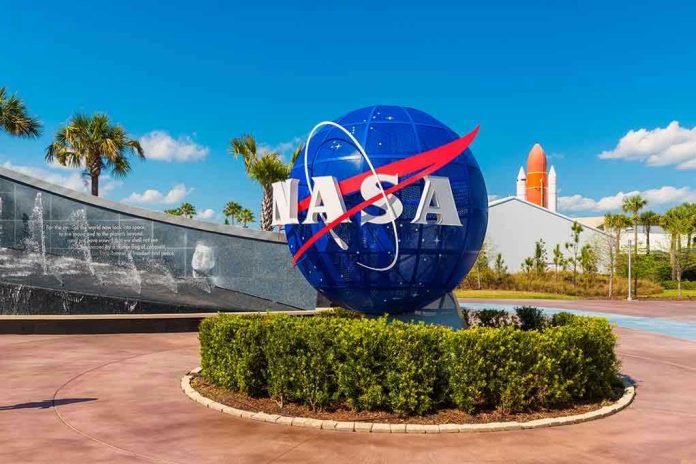
NASA’s dramatic retreat from climate science in favor of Moon and Mars missions is igniting fierce debate over America’s scientific priorities and constitutional checks on runaway federal agendas.
Story Snapshot
- The Trump administration’s 2026 budget proposes slashing NASA’s Earth science funding by more than 47% to prioritize deep space exploration.
- Over 50 climate and Earth observation missions are at risk, raising concerns about public health, disaster response, and global climate leadership.
- NASA leadership confirms a strategic pivot away from climate research, while Congress and scientific communities push back against the cuts.
- The debate exposes tensions between restoring NASA’s space focus and maintaining critical climate data for national security and economic stability.
Historic Funding Shift: NASA’s Space Mandate Reasserted
The Trump administration’s FY 2026 budget proposal signals a seismic shift in NASA’s mission, ordering a 47% reduction in Earth science funding and an explicit redirection of the agency’s resources to lunar and Martian exploration. Acting administrator Sean Duffy stated that NASA will “move aside” from climate sciences to focus on space, reflecting a belief that America’s leadership in space requires undivided attention and resources. With more than 50 Earth observation missions now threatened, this move marks the most aggressive federal rollback of climate research in decades.
This policy realignment comes after years of expanding climate initiatives under the Biden administration, which had positioned NASA as a global leader in Earth observation and climate science. NASA’s Earth Science Division, essential for data on weather, disaster response, and environmental hazards, faces unprecedented cuts that many in the scientific and public health communities warn could undermine national resilience. The administration’s stance mirrors longstanding arguments from conservative think tanks that NASA’s “core mission” should be exploration, not environmental monitoring.
Congressional Resistance and Political Tensions
Despite the administration’s directives, Congress—particularly the Senate Appropriations Committee—has historically resisted such deep cuts to NASA’s science budget. Lawmakers from both parties recognize the strategic and economic value of maintaining robust Earth observation capabilities. The proposed budget reductions have triggered a contentious review process, with appropriators signaling intentions to restore at least some funding. This dynamic highlights the constitutional balance of power: while the White House sets priorities, Congress ultimately controls appropriations and can check executive overreach that may threaten national interests or essential public services.
The public response has been swift and polarized. Supporters of the shift argue that focusing on Moon and Mars exploration revives American innovation, reasserts global leadership in space, and trims federal overreach. Critics warn that the loss of critical climate data could jeopardize U.S. disaster preparedness, harm sectors like agriculture and infrastructure, and erode the nation’s influence in international science collaborations. The debate underscores deep divisions over the scope of federal agencies and the proper use of taxpayer funds.
Consequences for Science, Security, and Conservative Values
The immediate impact of NASA’s shift will likely be felt by scientists, public health officials, and industries that rely on satellite data for forecasting, disease tracking, and emergency response. Advocates of the cuts frame the realignment as a necessary correction to bureaucratic mission creep and a reaffirmation of conservative values like limited government and national sovereignty. Detractors, including major scientific organizations, contend that sidelining climate science risks both economic security and public safety.
While some see the move as restoring NASA’s original purpose, others argue it ignores the constitutional imperative to safeguard the public good. The controversy is expected to intensify as Congress debates the final budget, with the outcome poised to set a precedent for federal science policy and the role of government in addressing environmental and societal challenges.
NASA Shifts From Climate Sciences to Space Exploration https://t.co/GvKjD63pK6
— Lean Right News (@LeanRightGnus) August 20, 2025
As Congressional review continues, uncertainty looms over the fate of dozens of missions and the future of U.S. leadership in both space and climate research. The decision will reveal whether constitutional checks can temper executive ambitions and whether America will lead or abdicate in the critical arenas of science and security.
Sources:
NASA’s Role in Public Health Research Under Threat
Trump Administration’s Budget Threatens NASA Climate and Carbon Monitoring Satellites
NASA Prepares to Enact White House Budget Cuts, Changes
Trump Wants NASA to Burn a Crucial Satellite to Cinders, Killing Research into Climate Change



